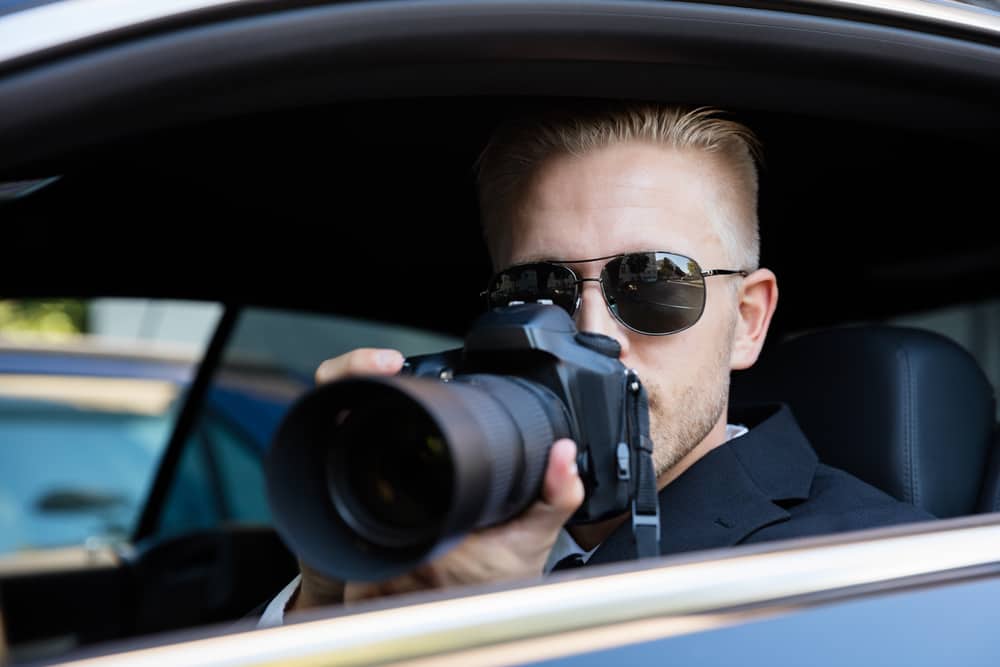When talking to a new account or new insured an important question to ask is if they have cameras on-site and in the parking lots. Surprisingly throughout the years most accounts I have dealt with have said they have nothing in place to record what their employees, customers, or vendors are doing while on their premises.
Cameras of Today Are Significantly Better Than the Past
The normal arguments are that they are too expensive, they do not cover a wide-enough area, the pictures are grainy, and the logistics and legality issues are an HR nightmare. All of the above are true to a point, but most risk managers that are dealing with these issues are thinking of the cameras and recording equipment of the past. Nowadays there are fantastic options out there when it comes to this sort of equipment. Not only are the pictures better and the technology easier to use, but for insurance purposes it can wind up saving you tons on claims, especially if you are self-insured or on a high-deductible program.
Camera Saves on Trucking Claim
For example, I know a trucking company that uses in-cab video recordings of their drivers. These dash cams have certain criteria that will trip them to activate, and the risk manager says that it has saves them money constantly. The cameras record GPS location, speed, and provide a clear shot of the driver and of what the driver is seeing out the windshield. The risk manager pointed out that it has been of fantastic use in traffic accidents when other vehicles have been at fault but pointed the finger at their semi-truck drivers as being the ones responsible for auto accidents.
They also worked wonders in a work comp claim I once reviewed for them. The driver had pulled to the side of the road to check on the trailer because of suspected mechanical failure. In the course of the driver pulling over, the wheels caught a big rut in the shoulder and it toppled the semi and the trailer over onto its side, catapulting the driver into the passenger side of the cab. A work comp claim was filed, and the driver alleged shoulder pain and a closed head injury with headaches.
But the camera was the key component in the defense. It turns out the driver was not wearing their seat belt at the time the accident occurred. Also the adjuster was able to show the IME doctor the video, and the orthopedic IME doctor stated that the way the driver hit the other side of the cab was not a proper mechanism of injury for a rotator cuff tear because her arms were in a neutral position at impact. The camera also pointed out a lot of inconsistencies in the driver’s statement involving the seat belt, the speed, the location, the activities after the crash, and so on. So in this case, the camera literally saved them a 6-figure work comp injury claim. If you were to take the camera away, there is no way the carrier would have formed a proper defense taking the mechanism of injury in to account.
Camera Saves Claim on Parking Lot Slip & Fall
Another example is a slip/fall in the parking lot of an employer. The injured worker said he fell in the parking lot on ice, injuring his knee and back when he twisted and fell to the ground after slipping. The camera came to the rescue again, because the footage showed the claimant did indeed fall on the knee, but he did not fall to the ground. However in his recorded statement, he was adamant that he fell onto his lower back at the time of the fall. When the video evidence was presented to the IME doctor and to the claimant’s attorney, with the claimant in the room, it clearly showed that he was not being truthful about his allegation of injuries sustained when he fell. If you remove the video footage, there is little chance the carrier would have had such a solid defense. This claim also was large with a Medicare Set-aside exposure.
These two examples alone are fantastic cases where large-exposure claims were able to be disputed and settled for nominal amounts due to the existence of video footage. These cases alone should be all you need to change your mind about the benefits of video on your work premises, but I will leave you with one more just in case you are still on the fence.
Camera Saves on Frostbite Claim
I recall a case with a grocery store chain where a worker that was handling ice cream in their warehouse distribution center claimed frostbite due to alleged faulty gloves and equipment the employer provided them to wear when working in the ice cream freezer. This freezer is kept at a temperature of -30F, and workers in this freezer wear these thick suits with full body protection. They also have numbers on the back, like a football jersey, so the employer can identify which worker is in the freezer should an incident occur.
The video was successful in showing the claimant taking his gloves off for a period of many minutes while working. This is a procedural violation and a safety program violation, and one that is rigorously enforced due to the short amount of time it would take for frostbite to develop in this freezer. He sustained partial amputations of a few fingers, and he also had many other associated medical problems due to healing and pain issues as a result of the injury. In this case, it is clearly willful misconduct and the case was able to be disputed and settled in Court rather than voluntarily accepted. The worker tried leaving the carrier on the hook for an injury that was sustained on purpose for the reason of hoping to net a large payday on a work comp settlement.
If you think you would not have the need for video defense in the course of what seems like a normal work comp claim, you may want to reconsider. Video evidence is one of the best defenses you can have. If the cameras come to your defense on just one potential large exposure claim, then they have already paid for themselves.
Author Michael B. Stack, CPA, Principal, Amaxx Risk Solutions, Inc. is an expert in employer communication systems and part of the Amaxx team helping companies reduce their workers compensation costs by 20% to 50%. He is a writer, speaker, and website publisher. www.reduceyourworkerscomp.com. Contact: mstack@reduceyourworkerscomp.com.
©2014 Amaxx Risk Solutions, Inc. All rights reserved under International Copyright Law.
WORK COMP CALCULATOR: http://www.LowerWC.com/calculator.php
MODIFIED DUTY CALCULATOR: http://www.LowerWC.com/transitional-duty-cost-calculator.php
WC GROUP: http://www.linkedin.com/groups?homeNewMember=&gid=1922050/
SUBSCRIBE: Workers Comp Resource Center Newsletter
Do not use this information without independent verification. All state laws vary. You should consult with your insurance broker, attorney, or qualified professional.

























